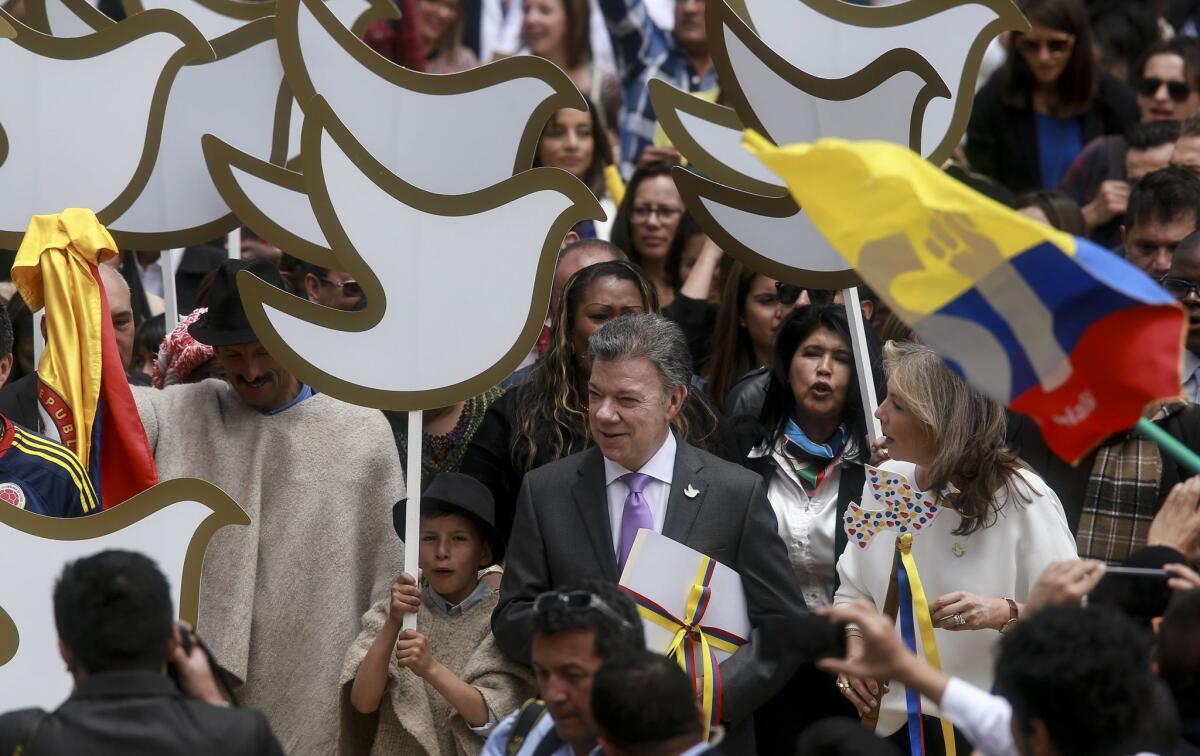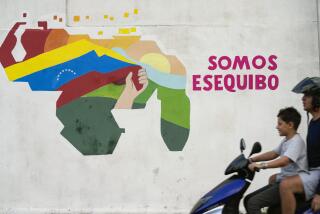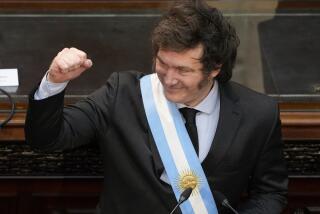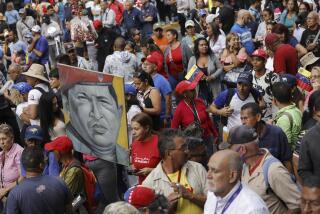Now that a peace deal with the FARC is sealed, can Colombia convince voters to approve it?

With a peace deal in hand to end the longest-running conflict in the Western hemisphere, Colombian President Juan Manuel Santos must now turn to a new task: convincing voters to approve it on Oct. 2.
Recent polls show Colombians are sharply divided over the peace deal with the Revolutionary Armed Forces of Colombia, or FARC, and generally give Santos low marks as president. Against that backdrop, Santos will now mount an intense campaign to convince them peace is worth the concessions the deal would provide the rebels.
“We now have two choices: continue down the agonizing path of war or move toward a firm peace,” the government’s lead negotiator, Humberto de la Calle, said at a news conference in Havana on Thursday, a day after the agreement was announced there. “I am convinced this is the best agreement possible.”
It faces well-financed opponents led by ex-president Alvaro Uribe, now a popular senator. Uribe says the deal was too generous to a rebel group that in his view was nearly defeated on the battlefield in 2012 when Santos initiated talks.
Among the deal’s most contentious terms is a pledge to give the FARC 10 congressional seats. Many Colombians also oppose the promise to give rebels relatively light sentences even for crimes such as murder and kidnapping as long as they confess and ask forgiveness.
The high cost of implementing the agreement — as much as $70 billion over the next decade, largely in aid programs for demobilized guerrillas — could also dissuade voters from approving it, said Ariel Avila, assistant director of the Peace and Reconciliation Foundation in Bogota.
Avila and other analysts predict the agreement will win the plebiscite but that the vote may be close because of the revulsion many Colombians feel for the FARC. Several said Santos has done a poor job rallying Colombians to his side
“I think the deal is a good one, but what worries me is the poor selling job by the government,” Avila said. “This is a very polarized country, and reconciliation won’t happen in a month.”
The accord means the country may finally know peace after having been at war since 1964. The conflict has cost 220,000 lives and forced millions to flee their homes. Santos and his supporters will tout a “peace dividend” of economic growth, more jobs and rural development .
Christopher Sabatini, a lecturer in international policy at Columbia University, said Santos “has to set an overarching narrative as to why peace is good and that this deal is not a sop to the FARC.”
That won’t be easy, he said, because the four-year peace talks have been “shrouded in mystery,” leaving many Colombians with a sense that they were excluded from the process. Opponents of the deal may have an opening to argue that the government conceded too much.
Adam Isacson, a senior associate at the Washington Office on Latin America think tank, said the opponent have a “huge head start” in the campaign. “They have organized more quickly and are more nimble using social media, even though much of what they say is untrue,” he said.
Santos has scheduled the plebiscite to come after the formal signing of the agreement in a ceremony Sept. 23 that would likely include various Latin American presidents. Isacson said that was wise timing.
“The yes vote should win in the wake of the huge celebration we’ll see during and immediately after the signing ceremony,” Isacson said. “The question is whether ‘yes’ will win with a strong or weak mandate. A narrow win could take the wind out of the sails of Colombian politicians and make them less willing to see this thing through.”
Kraul is a special correspondent.
More to Read
Start your day right
Sign up for Essential California for news, features and recommendations from the L.A. Times and beyond in your inbox six days a week.
You may occasionally receive promotional content from the Los Angeles Times.






